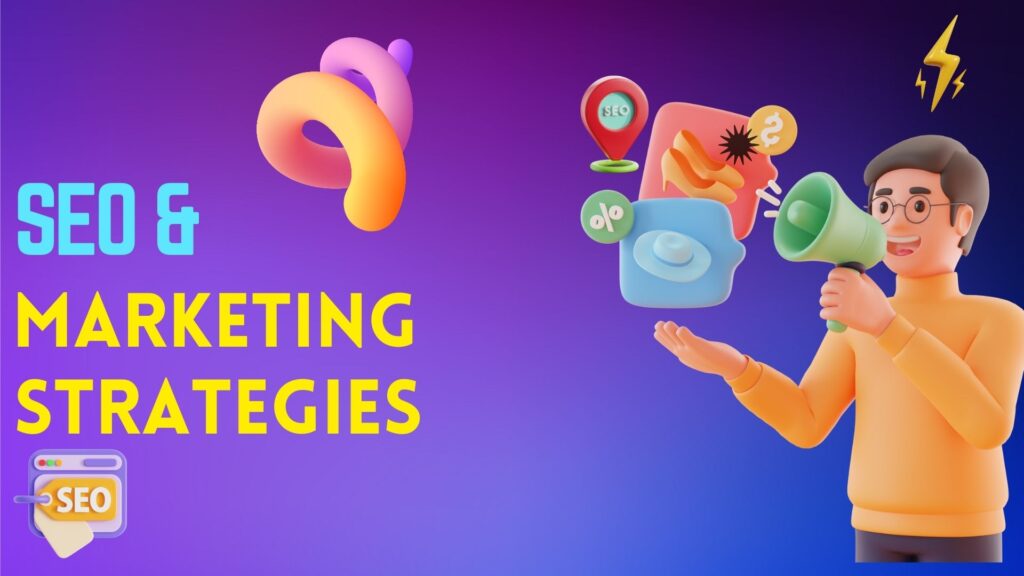Search Engine Optimization (SEO) continues to rule the roost when it comes to digital marketing and is one of its pillars which significantly contributes in increasing visibility, driving organic traffic thus further leading you towards success on web. The more intuitive search engines and changing user behaviors get, the harder it is for businesses to reap all the rewards of a digital advantage without understanding SEO basics.
Introduction to Search Engine Optimization(SEO)
The full form of SEO is Search Engine Optimization which is a collection of techniques to appear in search result page or increasing visibility & ranking on any website. At the heart of SEO is optimizing parts of your website for search engine algorithms, leading to a higher stature on results pages which are being manipulated by users in this digital age.
The Evolution of Search Engine Optimization(SEO)
Major Changes in SEO: SEO has changed quite a bit since it is created during the 1990s once early on search engines like yahoo for example AltaVista and Yahoo! relied on simple algorithms. A lot has changed since then, and today search engines like Google follows sophisticated algorithms that consider hundreds of factors before determining which sites the most relevant. The emphasis on user experience, relevance and authority means the new cogwheels of algorithms require a more comprehensive SEO approach which is not like dark arts such as keyword stuffing or any one hit modifications.
Key Components of SEO
1. On-Page SEO
On-page SEO is the act of optimizing each website pages with the aim to rank up and get more pertinent traffic in search engines. Key elements include:
• Keyword Research: Discover relevant keys that are heavy-searched & have low competition.
Optimized Content – Writing content meant to contain certain keywords in as natural a way possible
Meta Tags and Descriptions- Making intriguing Meta titles and descriptions, that make people click.
• Good URL structure — Short, clear and contains the keyword • Using Keywords in Title tag
2. Off-Page SEO
Off-page SEO: Off-page refers to the things that people can do directly OFF their website, there are a few different actions one take (or not) and in this case they aim to influence search engine rankings It includes:
• Building Back Link: To get backlinks from high PR websites to improve the authority and credibility.
• Social Media Marketing – Utilizing the social platforms to push content and refer traffic back to your site.
• Online/ Social Reputation Management- To monitor and manage online reviews on products, services of the company etc. to make a brand powerful as well as trusted by people.
3. Technical SEO
In simpler terms, technical SEO entails fine-tuning the various components of your site that improve its potential to be crawled and indexed – ultimately leading to better performance in organic search. Key areas include:
Site Speed Optimization: More quickly loading speed makes user fun, and so users will less possibly go back to browse another link.
• Accessibility: Mobile responsive and user friendly
• Use structured Data Markup: Using schema markup for helping search engines know better about your content.
• Site Architecture: Structuring content for easier navigation and indexing.
SEO Importance In Digital Marketing
However, by employing SEO strategies and tactics that people can make a part of their daily lives to bring sustainable organic traffic from the search engines (to reduce dependency on paid advertising) also increase brand credibility as well visibility. Companies that get SEO right when they start with their business have a boost in an online profile, and the benefits it brings are long-lasting marketing actions providing ongoing results.
Best Practices & Strategies of SEO
1. Content Quality and Relevance
Original, high-quality and authoritative content is still one of the biggest aspects in SEO that brings results. You need to write informative, well researched, and regarding the interests | needs of visitor’s content.
2. User Experience Optimization
User Experience (UX) – UX experience is one of the fundamentals of SEO and also an important thing to do for your end users. Site speed, how easy the site is to navigate and can it work on mobile are all factors that affect user satisfaction which in turn impacts both your ranking with Google too.
3. E-A-T (Expertise, Authoritativeness and Trustworthiness)
The most important one of those measures (For Google) when assessing website “quality” is E-A-T factors. Above all, the backbone of improving SEO is cultivating ethos along with a pertinent field showing credit amongst your audience.
4. Adaptation:
Adaptation to algorithm updates is a never-ending task
To match up with dynamic search engine algorithms it is important to be kept abreast of updates and altering strategies accordingly. If you keep an eye on industry trends and algorithm changes, that can help you to not only improve the SEO effectiveness but also prevent any serious ranking fluctuations.
SEO Tools and Analytics
There are many great tools and analytical platforms that can facilitate the implementation, tracking, and optimization of SEO strategies:
Google Analytics —
Understand site traffic, user behavior and conversion rates
The Search Console is a free service that enables you to monitor your website’s performance in Google search results, and provides information on fixing any indexing problems.
Keyword Research Tools –
Some examples are SEMrush, Ahrefs, and Moz Keyword Explorer which help in finding relevant keywords as well reveal about the competition.
SEO – With Challenges and Considerations
Although SEO has many advantages to offer, it also comes with a set of challenges that need to be taken in account:
• Application Changes:
These changes take effect instantly and will affect how well a product ranks, resulting in necessary rotations to remain visible at the top.
• Competition:
Saturated digital spaces require unique solutions to differentiate from the crowd.
• Technical Complexity –
advanced SEO tactics often require technical expertise, and continuous implementation.
Conclusion
In conclusion, SEO in this day and age is no walk in the park but a field that evolves swiftly requires an extensive legwork to become successful. Using this knowledge, you will be able to leverage on the best SEO practices from ranging from on page and Off page optimization to technical improvements as well as develop powerful content in building an effective online identity that connects with your target audience leading them towards also exceeding your marketing goals.
In 2024, as SEO and technology itself keep advancing (and so too do user behaviors) being educated about them is going to be key if you want your digital marketing strategies to get the most out of this particular form of search engine optimization. Those who are willing to optimize their website for SEO will not only survive, but thrive in an increasing connected and competitive world.
You may also like:http://exploringdigitalmarketing.com/digital-marketing-for-beginners-in-the-year-2024/







